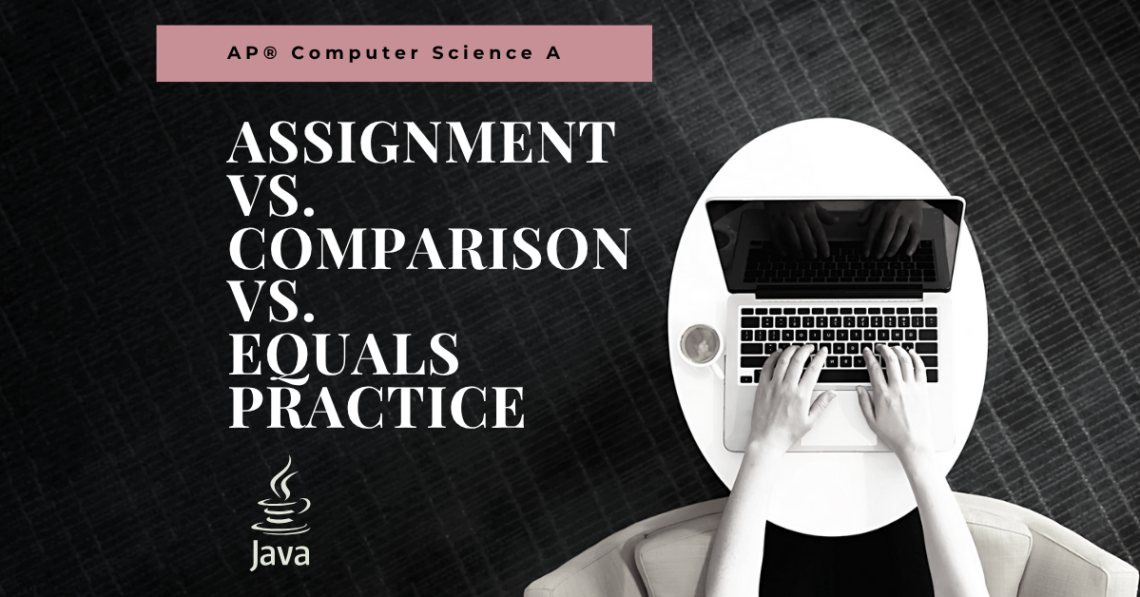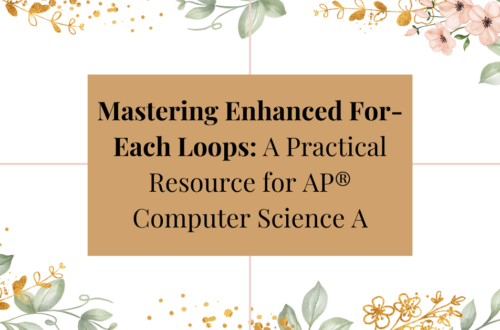In Java programming, understanding the differences between the assignment operator (=), the comparison operator (==), and the .equals() method is essential. Misunderstanding these can lead to logical errors that are often hard to debug. The Assignment vs. Comparison vs. .equals resource is designed to help AP® Computer Science A students grasp these concepts through targeted practice.
Why This Distinction Matters
Students often confuse:
- Assignment (
=): Used to assign a value to a variable. - Comparison (
==): Checks if two primitive values are equal or if two object references point to the same object. .equals()method: Determines if two objects are logically equivalent, based on their content.
Understanding these differences is crucial for writing correct and efficient Java programs.
What’s Included in the Resource?
This resource offers:
- 20 practice questions: Focused on differentiating between assignment, comparison, and equality checks.
- Varied scenarios: Including both primitive types and object references to illustrate each concept.
- Answer key: Facilitates self-assessment and guided learning.
By engaging with these exercises, students can solidify their understanding and avoid common pitfalls in Java programming.
Integrating This Resource into Your Teaching
This resource can be effectively utilized as:
- Classroom activities: Encouraging group discussions and collaborative problem-solving.
- Homework assignments: Reinforcing concepts learned during lectures.
- Assessment tools: Evaluating students’ grasp of fundamental Java operations.
It’s a versatile addition to any AP® Computer Science A curriculum, enhancing students’ programming proficiency.
Final Thoughts
Clarifying the differences between assignment, comparison, and the .equals() method is vital for students’ success in Java programming. The Assignment vs. Comparison vs. .equals resource provides the necessary tools to navigate these concepts confidently, preparing students for advanced programming challenges.
AP® is a registered trademark of the College Board® which does not endorse this product.





